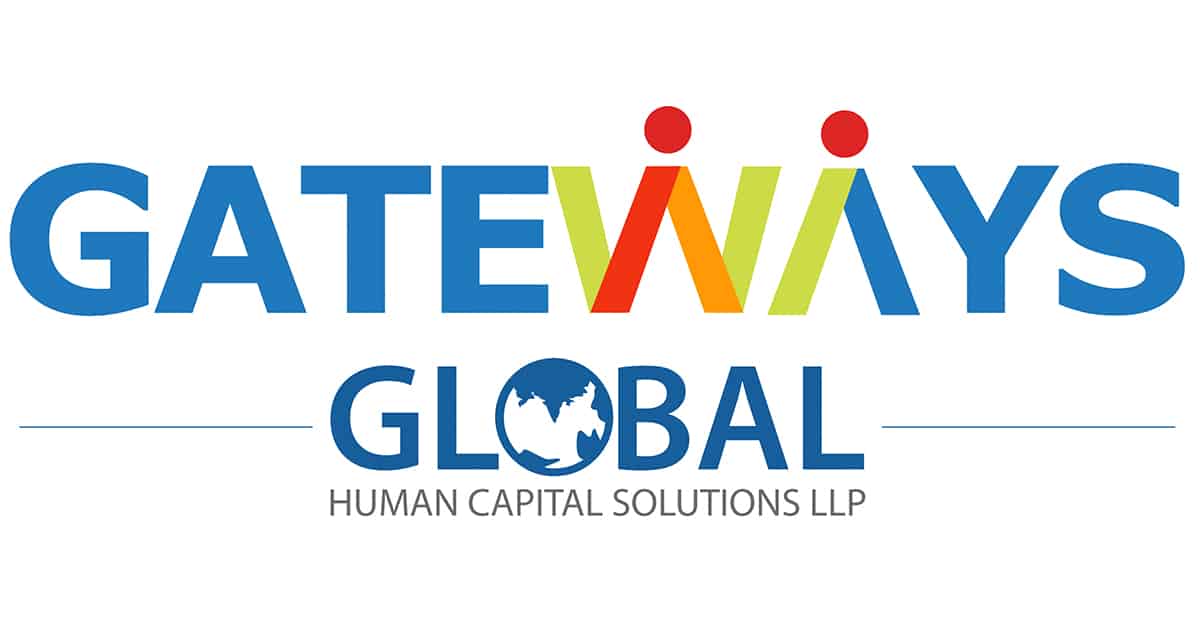The unprecedented outbreak of Covid-19 urges businesses to define a new normal in operations, strategies and approach while re-entering the market. Dealing with economic slowdown, people morale and uncertainty has become a challenging proposition to leaders in making decisions for a long-term impact. Hence, sharing a few best practices followed in different organizations, will help companies define policies and systems most appropriate to their businesses.
The survey-based research conducted by IIM Ahmedabad in association with GatewaysGlobal LLP is intended to understand the impact of Covid-19 on Family Businesses.
GatewaysGlobal is a family business advisory firm specialized in developing and implementing a Governance system and professionalizing the organization, ensuring a cultural reinvention. IIM Ahmedabad, progressing towards its vision of ‘educating and nurturing leaders of institutions and entrepreneurial organizations, has been into research for academic interest and to create a progressive and sustainable impact on society.
Methodology of research:
Survey conducted over telephone or through face to face interaction
Process of research:

Duration of research:
The duration to complete this survey is expected to be for 6 months including the submission of report on best practices to each participating organization.
Team GatewaysGlobal would is always committed to work with family businesses to enhance their performance and look forward for more fruitful associations in future. We hope, this joint initiative would help to identify future-focused and sustainable practices to deal with dynamic business environment.
COVID-19 Impact on Family Business in Kerala: Interim Survey Report
The COVID-19 pandemic has put almost all businesses across the globe to a survival test in the last few months. Family-owned businesses are no exception when we delve into the impact of the pandemic. The current crisis has caused widespread instability across various sectors as well.
Kerala, “Gods’ own country”, is home to plenty of family-run businesses spreading across various industries which includes jewellers, restaurant chains, FMCG, construction, NBFC, healthcare, hospitality, etc. Family businesses continue to be an acceptable norm in Kerala, with most entrepreneurs and business owners passing down their businesses to the next generation. Due to their widespread presence, family businesses are recognized as important and dynamic participants in the economy.
The ongoing research survey covering around 50 family businesses in Kerala is being guided by Prof. Biju Varkkey, Faculty, IIM-Ahmedabad and M R Rajesh Kumar, Lead Partner, GatewaysGlobal Human Capital Solutions LLP- a leading family business advisory firm.
The research has been conducted across three levels of businesses: Family Management level, Non-Family Management level, and Employee level. The family business owners and key family members were covered in the survey. The respondents shared their experiences and insights on the present situation and how they coped up with COVID-induced challenges.
As per the survey, family businesses have faced challenges of varied nature and intensity and reacted towards COVID-19 across the three levels.
One of the major challenges was managing the family itself, as it interfaces with itself and with other family members
|
Levels |
Challenges |
Coping Strategy |
|
Family Management |
1. Manage communication channels at the family level. 2. Family governance and lack of succession plan for family members to take up new responsibilities. 3. Senior family members becoming indisposed due to COVID restrictions |
1. Use of digital communication tools. 2. Family members and top management reorientation 3. Encouraging next-generation family members to take up strategic roles in the business. |
Managing regular communication has been a big challenge in the pandemic time due to various restrictions imposed externally and internally. All family businesses started relying on various technology platforms to reestablish and continue communication with the family and top management. Bringing the whole family together was challenging since they were geographically separated. Most family businesses faced a sudden leadership vacuum due to a lack of senior members since they were indisposed due to COVID restrictions. Family respondents also mentioned that they experienced a sudden vacuum due to the lack of established family governance protocols.
|
Levels |
Challenges |
Coping Strategy |
|
Non-Family Management |
1. Revenue generation 2. Limitations of not having an organized and professional approach. 3. Pressure to develop strategic initiatives & implementation to meet COVID 19 challenges |
1. Reaching out to new markets 2. Reexamine existing business and management practices. 3. Use of digital communication tool 4. Decentralizing functions 5. Openness to professional consultation |
Non-family members who ran the business looked up to family members for aid since they faced a different set of problems. Most family-owned businesses during COVID 19 revealed that organisational structure and professional approach towards tackling issues at hand were major challenges. Many of them were comfortable with existing processes which helped them function during normal times but they were not prepared to face the present crises. We observe that organisations lacked the resilience to come out of the situation which had a great role to play in a pandemic situation. They could not anticipate, prepare for, respond, and adapt to sudden disruptions to survive and prosper. We find that the approach was more reactionary rather than taking a strategic approach to facing the issue. Over some time, almost all organisations were able to reorient. The importance of professional management, in a way, has been reinforced and a good number of family businesses became open to external consultation. They started hiring consultants and subject matter experts.
|
Levels |
Challenges |
Coping Strategy |
|
Employee Management |
1. Talent retention & productivity 2. Paying employee compensation & other existing benefits like incentives, bonuses, etc. 3. Manage communication channels at the employee level. |
1. Use of digital communication tools 2. Businesses resorted to countercyclical hiring 3. There were no salary cuts. Salaries were paid either fully or partially. |
Companies had bigger challenges concerning talent management, talent retention, and compensation management. The employees had to be given reassurance on their career and compensation to retain them and at the same time companies had to prepare themselves within a short period on business priorities as well.
The family businesses that took part in the survey had shared their unique business practices during the COVID period to face the challenges mentioned above. Many unique practices have been identified in the family businesses; mentioning some of them identified on two fronts, namely communication at family and employee level and employee management level.
|
Fronts |
Unique Business Practices |
|
Communication |
At family level: Conducting family council discussions, family member meets, board meetings, extensive use of digital communication tools to communicate between family members. One of the companies explicitly mentioned that the Family Council was able to contribute. There has also been more active participation within the family members including sleeping family members as well. Since the senior generation was indisposed due to COVID restrictions, the younger generation stepped in to run the business at the forefront. At family to employee level: Conducting direct meetings, online meetings, regular reviews (daily, weekly, bi-weekly, monthly), adopt top-down communication, supervisor-employee meetings (with planned ratio), and direct interaction through managers. Owners increased the intensity of communication by reaching out to lower-level employees amidst COVID restrictions. One of the CEOs mentioned that he travelled to communicate with the employees at their factory in a different state amid the COVID restrictions to boost their morale and extend support. |
|
Employee Management Practices |
Family businesses had been benevolent by retaining jobs and supporting employees. Since they had no pressure from stock / private equity, they were able to retain employees. Concerning salary payment, almost all the companies paid salaries to their employees either fully or partially. Companies provided employee benefits like COVID insurance to employees. A few companies surveyed employee living standards to extend support, accordingly. Some of the companies also brought in consultants for professional advice to increase internal efficiency thereby realizing the importance of changing the status quo. One of the companies hired a CEO during the COVID for professional management. |
Out of the companies interviewed, 72% of the total firms are managed by second and third generation whereas only 18% are headed by 4th and 5th generation family members which was a major challenge. They recognized it as an immediate need. While the senior generation relied on proven & external strategies and resisted change, the younger generation has futuristic plans which focused on growth & diversification, opportunity exploration & readiness to take up risks, and focus more on internal strategies. Businesses that relied on family governance were able to cope up.
During the research we found that 80% of the interviewed firms, do not have a well-structured family constitution and a succession plan for family members in place which has led to a major challenge of lack of professional organisational structure and approach. This trend has enlightened about 41% of the family businesses has expressed the need to implement the family governance framework in place.
The disruptive events like COVID-19 are challenging and tough for family businesses to stay afloat and focus on growth. In the subsequent report, we will explore more into the challenges faced and best practices adopted by the family businesses.
A study by GatewaysGlobal in association with IIM Ahmedabad


